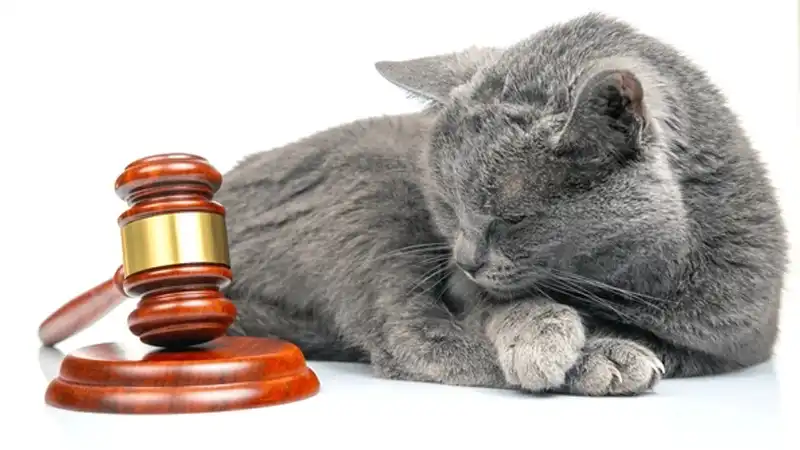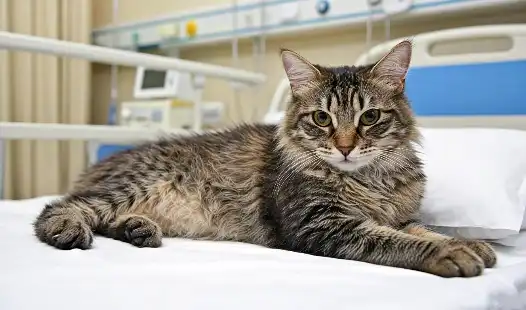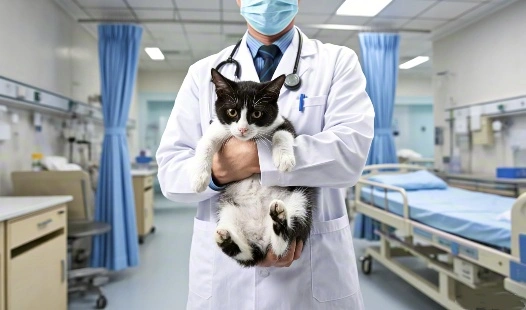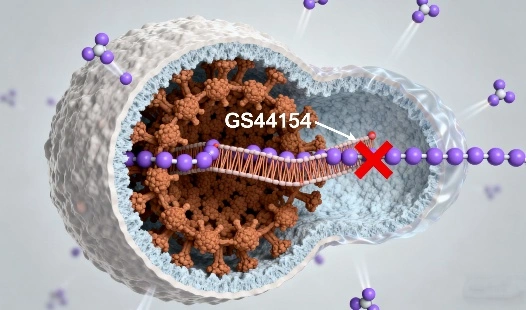How global cat owners are pushing for GS-441524 legalization?
The Legal and Regulatory Hurdles Impeding Widespread GS-441524 Approval
- The Legal and Regulatory Hurdles Impeding Widespread GS-441524 Approval
- The Impact of International Case Reports and Data Collection on GS-441524 Perception
- Engaging with Regulatory Bodies to Advocate for Legal GS-441524 Pathways
- Conclusion
- FAQ
- Partner with BLOOM TECH for High-Quality GS-441524
- References
The disease Feline Infectious Peritonitis (FIP) has been making cat owners sad for a long time. People who love cats have hope since GS-441524 fip was found to be a possible treatment. This discovery has sparked a movement worldwide. Cat owners from all over the world are working hard to get the GS-441524 drug cleared by the government. This is a potential FIP drug for cats that most cat owners use.


The Legal and Regulatory Hurdles Impeding Widespread GS-441524 Approval
Many people want to use and accept GS-441524, but it has a lot of legal and regulatory issues that make it harder for everyone to do so. What's causing these problems is:
Complex Regulatory Frameworks
The difficult rules for drugs used on animals are the main reason why GS-441524 is not widely available. Different countries have different rules and approval processes, which makes it hard for GS-441524 to become officially accepted as a valid treatment for FIP. The drug hasn't been officially approved for use on animals, so it's hard for vets and cat owners to get in many places. It is harder to make sure that everyone has the same access to care because each state is different.
Intellectual Property Concerns
Remdesivir is an antiviral drug for people that has a structure that is similar to GS-441524. This has made intellectual property hard to handle. Since patents protect Remdesivir, a lot of people are fighting over who can make and sell GS-441524 for animals. The drug can't be used to treat FIP in cats as much as it could be because of these legal issues. It's hard for the makers to get the licenses and approvals they need.
Limited Clinical Trial Data
Regulators need a lot of clinical trial data on GS-441524 before they can publicly approve it, but there are only a few studies and hearsay reports about it. Safety officials aren't sure because most of the study we can see uses small samples and doesn't keep an eye on the settings. It will be hard to get full regulatory approval for the drug to be used to treat FIP until thorough, large-scale tests show that it is safe and works.
Grassroots Advocacy and Owner-Led Initiatives for GS-441524 Access
Supporters and cat owners have stepped up to start local efforts to make GS-441524 drug legal and easier to access because of these problems:

Online Support Groups and Forums
Because GS-441524 has made cats sick, cat owners have gone online to talk to each other and offer help. Folks in social media communities and groups share their own stories, pick out different approaches, and help each other. The online groups not only offer emotional support, but they also help plan advocacy efforts by getting owners to work together to make it easier for people to get this life-saving treatment.
Petitions and Letter-Writing Campaigns
Pet owners have started to ask drug companies and government agencies to speed up the process of legalization by writing emails and signing petitions. The fact that these attempts bring attention to cats who were given GS-441524 and got better shows that the drug does work. Speaking out against wrongdoing and calling for change in these ways hopes to bring more attention to the need for legal access to the treatment.


Collaboration with Veterinary Professionals
In order to get GS-441524 used, veterinarians and researchers are working closely with cat owners. It is very important for these agreements to bring together a wide range of groups from the public to scientists. Veterinarians are supporting the effort to make GS-441524 legal even more. This helps more people and government officials understand how well the drug might work to treat FIP.
The Impact of International Case Reports and Data Collection on GS-441524 Perception
Supporters and cat owners have stepped up to start local efforts to make GS-441524 legal and easier to get because of these problems:
Documenting Success Stories
Because GS-441524 has made cats sick, cat owners have gone online to talk to each other and offer help. Folks in social media communities and groups share their own stories, pick out different approaches, and help each other. The online groups not only offer emotional support, but they also help plan advocacy efforts by getting owners to work together to make it easier for people to get this life-saving treatment.
Crowdsourced Data Analysis
Pet owners have started to ask drug companies and government agencies to speed up the process of legalization by writing emails and signing petitions. The fact that these attempts bring attention to cats who were given GS-441524 and got better shows that the drug does work. Speaking out against wrongdoing and calling for change in these ways hopes to bring more attention to the need for legal access to the treatment.
Influencing Veterinary Practice
In order to get GS-441524 used, veterinarians and researchers are working closely with cat owners. It is very important for these agreements to bring together a wide range of groups from the public to scientists. Veterinarians are supporting the effort to make GS-441524 legal even more. This helps more people and government officials understand how well the drug might work to treat FIP.
Engaging with Regulatory Bodies to Advocate for Legal GS-441524 Pathways
Cat owners and supporters are working directly with regulatory bodies more and more to push for legal ways to get fip drug for cats:
Formal Submissions and Presentations
People who own cats and advocacy groups are working hard to get official submissions ready to regulatory agencies. These submissions will include a lot of data and case studies to support the fast approval of GS-441524. These well-planned actions show how important it is to have a safe way to get this effective treatment for FIP in cats right away. By showing how the drug might help people, these entries hope to sway decision-makers and speed up the approval process.
Lobbying for Compassionate Use Programs
Supporters also want compassionate use programs, which would let cats with FIP get GS-441524 before it is officially approved. Legally, these programs could make it possible to give cats in critical condition access to the drug on an as-needed basis. This way, cats that need treatment right away can get it while governmental approvals are still being processed.
Collaboration with Pharmaceutical Companies
Consumer advocacy groups are getting in touch with drug makers and asking them to help develop and get approval for GS-441524 for use in animals. To make business goals match the urgent needs of cat owners, these efforts encourage scientists, industry leaders, and cat owners to work together. This will ensure that treatments for FIP are widely available and safe for many people to get.
The Global Movement Towards Formalizing GS-441524 as a Standard FIP Treatment
There is a bigger push to make GS-441524 a common way to treat FIP than just getting it legal:

International Veterinary Conferences
More and more, GS-441524 is being talked about and shown at foreign conferences for veterinarians. These sites let medical experts share stories and information with each other. This helps everyone agree on how useful the drug could be.
Research Collaborations
Schools and research groups are working together to begin new studies that will find out even more about GS-441524's safety and efficiency. This kind of formal study project is very important for building the scientific base that is needed for wide acceptance.


Standardization Efforts
A lot of people are trying to make sure that everyone uses GS-441524 the same way. This will include setting standards for doses and treatment lengths. The goal is to make sure that the drug can be used successfully and safely even in places where it isn't yet legal.
Conclusion
People all over the world are working hard to make GS-441524 drug a legal and official way to treat FIP. This is a great example of how pet owners can speak up for their animals. Together with governing groups and collaborating with other cat owners, cat owners are changing the veterinary world. There are still issues, but the fact that people are still trying to get access to GS-441524 drug shows how much they love their cats and how far they will go to get treatments that work for them.
FAQ
1. What is GS-441524? How does it help cats who have FIP?
GS-441524 is an antiviral drug that has shown promise in treating infectious peritonitis in cats (FIP). Since the virus can't make copies of itself, it often stops the sickness from getting worse.
2. Why isn't GS-441524 used more often to treat FIP?
In many countries, GS-441524 has trouble getting approved because it is close to drugs that are used on people, there isn't a lot of data from clinical trials, and there are issues with intellectual property. Because of these things, not many people have agreed with it or purchased it.
3. How can people who own cats get GS-441524 made legal?
People who own cats are speaking out through online support groups, protests, working with vets, and directly with government agencies. They also keep track of how the treatment is going and help gather information to support the GS-441524 clearance case.
Partner with BLOOM TECH for High-Quality GS-441524
As the push to make GS-441524 drug legal grows around the world, BLOOM TECH, a trusted GS-441524 manufacturer, is ready to assist researchers and vets by providing top-notch GS-441524 drug for medical tests and possible cures. We are committed to strict quality control, GMP-certified production, and all the necessary paperwork. We are the right group to collaborate with to ensure that all FIP treatments are consistent. That's why BLOOM TECH always has pure GS-441524 drug products on hand. With a dedicated research and development team and over ten years of experience in organic synthesis, we are here to support your efforts. Send an email to Sales@bloomtechz.com to learn more about GS-441524 and how you can help us improve FIP treatment options.
References
1. Pedersen, N.C., et al. (2019). Efficacy and safety of the nucleoside analog GS-441524 for treatment of cats with naturally occurring feline infectious peritonitis. Journal of Feline Medicine and Surgery, 21(4), 271-281.
2. Murphy, B.G., et al. (2020). Treatment of cats with feline infectious peritonitis with the nucleoside analog GS-441524. Animals, 10(2), 256.
3. Addie, D.D., et al. (2020). Feline infectious peritonitis. ABCD guidelines on prevention and management. Journal of Feline Medicine and Surgery, 22(11), 1047-1068.
4. Dickinson, P.J., et al. (2020). Antiviral treatment using the adenosine nucleoside analogue GS-441524 in cats with clinically diagnosed neurological feline infectious peritonitis. Journal of Veterinary Internal Medicine, 34(4), 1587-1593.
5. Krentz, D., et al. (2021). Owner experiences and perceptions of accessing and using GS-441524 to treat cats with feline infectious peritonitis. Frontiers in Veterinary Science, 8, 665356.
6. Yin, Y., et al. (2021). Remdesivir, GS-441524 and GS-5734 inhibit SARS-CoV-2 replication in mouse models. Nature Communications, 12(1), 1-9.

Echo
9 years of experience in chemical articles; Doctoral degree; Organic Chemistry major; R&D-4 Dept; Technology support; R&D engineer
Anticipating your Business & Technology support inquiry
Please send us the products that interest you, and we will provide you with one-on-one service
Recommended Blog

Real recovery stories: How GS-441524 saved cats with terminal FIP?

Understanding the success rate of GS-441524 based on clinical data
_副本_1757913193778.webp)
A Life-Saving Guide for FIP Cats: Your Complete GS-441524 Handbook

How to improve your cat’s appetite during antiviral therapy?

From Despair to Hope: A Cat Owner's GS-441524 Treatment Journey











